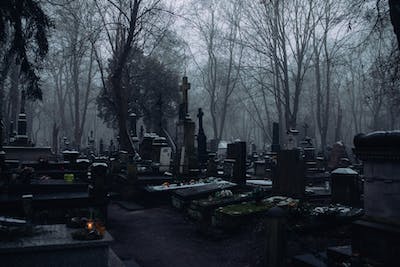Doctrine
What are the Catholic beliefs about death and the afterlife?
Catholicism, one of the world’s oldest and most widespread religious traditions, places great emphasis on beliefs about death and the afterlife. For Catholics, these beliefs are rooted in centuries of theology, scripture, and tradition. In this article, we will delve into the core tenets of Catholicism concerning death and the afterlife, exploring their significance, rituals, and variations within the faith.
- The Soul and Its Journey
Central to Catholic beliefs about death and the afterlife is the concept of the soul. According to Catholic doctrine, every individual possesses an immortal soul created by God. This soul is uniquely tied to the person and is distinct from the body. When death occurs, the soul separates from the body and embarks on a journey to its final destination.
- Heaven, Hell, and Purgatory
Catholics believe in three primary destinations for the soul after death: Heaven, Hell, and Purgatory.
- Heaven: Often described as the ultimate goal, Heaven is a state of eternal communion with God. It is a place of unimaginable joy, peace, and perfection, where the soul is united with God’s love for all eternity.
- Hell: Hell is viewed as a state of eternal separation from God, characterized by suffering and separation from all that is good. It is not a punishment inflicted by God but rather a choice made by those who reject His love.
- Purgatory: Purgatory is a temporary state where souls undergo purification to prepare for entry into Heaven. It is believed that souls in Purgatory are destined for Heaven but require purification due to their sins and imperfections.
- The Role of Sacraments
Catholicism places significant emphasis on the role of sacraments in the journey of the soul. The sacraments, such as Baptism, Confession, and the Eucharist, are seen as channels of grace that strengthen the soul and facilitate its path toward salvation. The reception of these sacraments is crucial in Catholic beliefs, especially in moments of impending death.
- Funeral Rites and Prayers
Catholic funeral rites are deeply rooted in tradition and symbolism. The Funeral Mass is a central component, where prayers and liturgical readings are offered for the deceased. The Church community comes together to support the grieving family and pray for the soul of the departed. The hope is that these prayers will aid the soul in its journey to eternal life.
- The Communion of Saints
Catholics believe in the “Communion of Saints,” which encompasses the living, the deceased, and the saints in Heaven. This belief fosters a sense of interconnectedness and mutual support within the Church. Catholics often seek the intercession of saints to pray for the souls of the departed.
- Variations in Catholic Beliefs
While the core beliefs about death and the afterlife are consistent in Catholicism, there can be variations in how these beliefs are practiced and interpreted within different cultures and communities. For example, some Catholics may emphasize the importance of purgatory more than others, while cultural customs and traditions can influence funeral practices.
Conclusion
Catholic beliefs about death and the afterlife are deeply rooted in theology, scripture, and tradition. The concepts of the immortal soul, Heaven, Hell, and Purgatory are central to understanding the Catholic perspective on what happens after death. The role of sacraments, funeral rites, and the communion of saints all play vital roles in guiding the soul on its journey toward eternal life. While there may be variations in how these beliefs are practiced, they remain fundamental to the Catholic faith, offering solace and hope to millions of believers around the world.
About Author






























